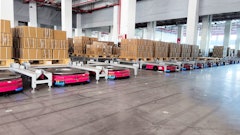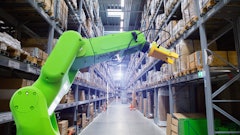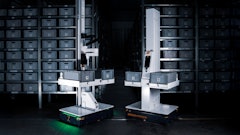
Last week’s CrowdStrike update led to widespread outages affecting Microsoft Windows systems, with significant ripple effects across various sectors, including airlines, banks, and hospitals, all reporting major disruptions.
Air freight and last-mile delivery also experienced significant disruption, according to new research by project44.
Key takeaways:
- Prior to the CrowdStrike update, the average air cargo transit time sat at ~3.6 days. Within the few days following the outages, transit time jumped by 25%, or an additional day of transit time. Transit time has since levelled out back to 3.6-3.8 days, but the impacts of the outage lasted 5 days until returning to normal.
- Weekly on-time performance for last-mile shipments has remained steady throughout 2024, fluctuating between 85-87% after an early January dip. There is a drop of 2% in performance levels for last-mile during the week of the outage. However, the last-mile industry appears to have recovered quickly. Between July 18-20, on-time performance dropped by 6% to a low of 79% on-time on July 20. However, by July 21, performance recovered and returned to 86%, showing a quick response.
- Although air transport has been the most affected, other transportation modes have also experienced issues due to the IT outages. Some port terminals faced technical difficulties the morning of the outage, but these problems were resolved swiftly. Trucks affected by the outage rescheduled appointments, but no significant backlog accumulated.
- Rail transport encountered minor issues as well, with minimal overall impact.
- There were also some interruptions in distribution center and warehouse operations, including automation inside warehouses and yard management. While these interruptions were able to shut down individual warehouses temporarily and were impactful to those individual companies, there was not an overall impact to truckload performance during this time.
”While technology in supply chain has helped streamline and optimize production, decrease transit times, and create major cost savings over the years, it is important to remember that technology is not foolproof. There is always a risk of future outages, cyberattacks, and even temporary Wi-Fi outages that have the potential to interrupt operations. Companies should use this as a reminder that there should still be manual backup plans in place. Clear standard operating procedures and training for what to do when technology fails is important to keep freight moving,” according to project44.















![Pros To Know 2026 [color]](https://img.sdcexec.com/mindful/acbm/workspaces/default/uploads/2025/08/prostoknow-2026-color.mduFvhpgMk.png?ar=16%3A9&auto=format%2Ccompress&bg=fff&fill-color=fff&fit=fill&h=135&q=70&w=240)




